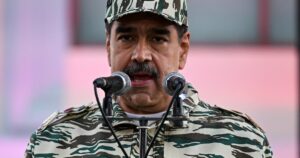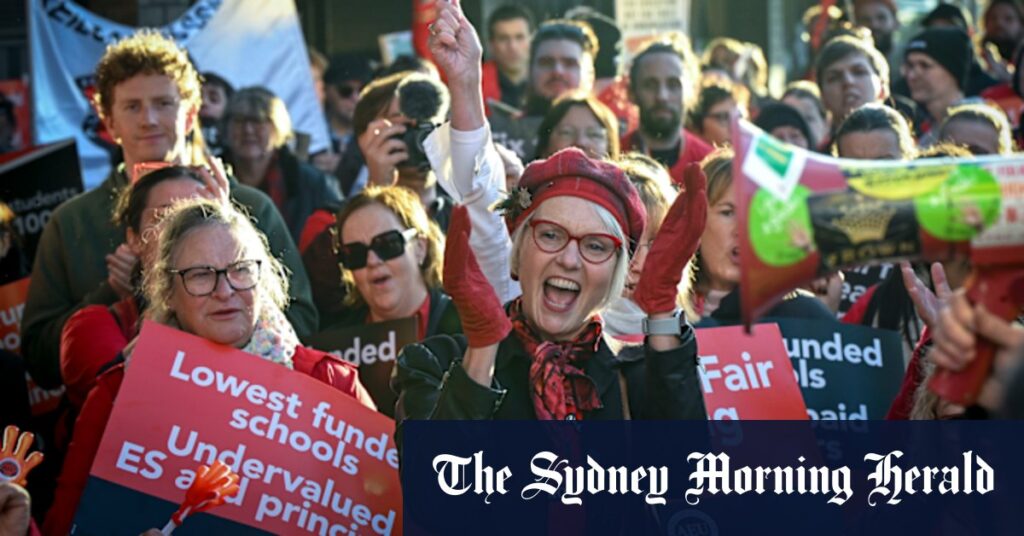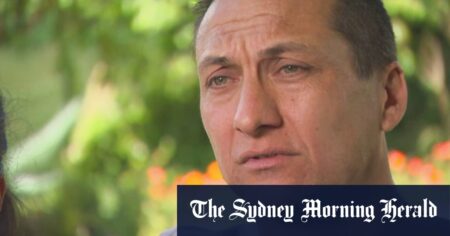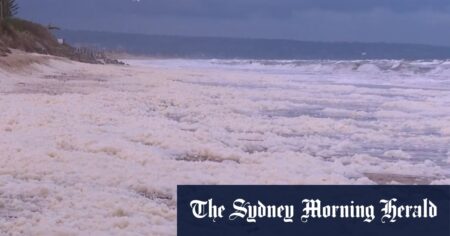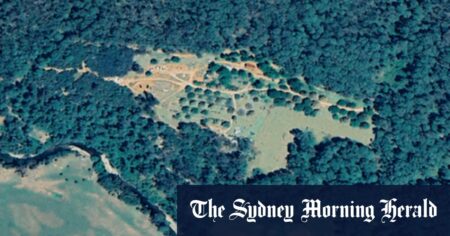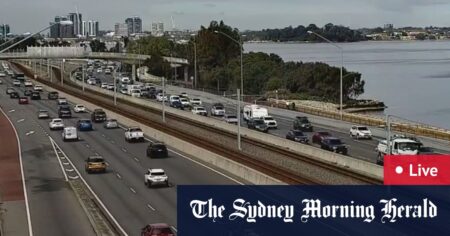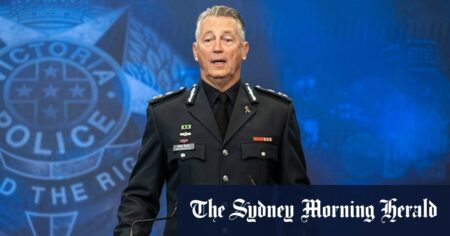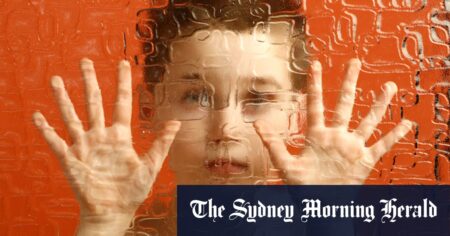The Education Department’s own wage bill is estimated to be nearly $260 million over its budgeted figure of $10.08 billion this financial year, while teachers, parents, principals and education experts clamour for more money for the state’s schools.
Loading
Restive public sector workforces have been politically problematic for Jacinta Allan’s Labor government, which settled a bitter industrial dispute with its police force in February. After a vote of no-confidence from officers, then-chief commissioner Shane Patton left the top job.
Teacher union members have also taken note of the last round of bargaining for the state’s nurses, who dramatically rejected a deal brokered between their union’s leadership and the state government last year, eventually winning a 28 per cent pay rise over four years.
Mullaly said on Monday that his union’s membership was up for an industrial fight, citing a recent surge in teachers signing up with the union and an unprecedented volume of submissions to the process of developing the log of claims.
“AEU members are highly engaged, ready to campaign for themselves and for the students they work with,” Mullaly said.
Loading
The union leader said the pay disparity with NSW teachers was a factor driving unhappiness among Victorian teachers.
“Victoria’s public schools are the lowest-funded in the country, and our teachers are the lowest-paid, with education support staff and school leaders also undervalued,” he said.
“Next year an experienced teacher working in Wodonga would be $15,359 better off a year, or $295 a week, by crossing the Murray and teaching in a public school in Albury.
“In 2026, an experienced Victorian teacher will be paid $118,063 compared to $133,422 for an experienced teacher in NSW.”
Loading
The union leader called on the government to “get serious” about addressing the many problems in the state’s schools.
“That means decent pay and conditions to attract and retain our public school teachers, principals and education support staff, increased classroom supports and smaller class sizes,” Mullaly said.
A Department of Education spokesperson said it looked forward to the pay talks.
“Our teachers and school staff play a vital role enriching the lives of young Victorians and instilling a lifelong love of learning,” they said.
“We value the important work of our teachers, education support staff and principals and look forward to commencing negotiations for a replacement agreement once a log of claims is received.”
The teachers’ move came after another group of Victorian government workers, the state’s MPs, were awarded a 3 per cent pay increase by the Independent Remuneration Tribunal on Friday.
The tribunal’s decision takes the basic salary of an MP in state parliament to $211,972. Ministers, shadow ministers, parliamentary secretaries, the premier and other MPs performing higher roles receive more.
Premier Jacinta Allan’s basic MP’s wage is topped-up with $256,525 a year, taking her total earnings to $468,497.
Opposition Leader Brad Battin and all government ministers, other than the deputy premier, will earn a total of $390,143.
Start the day with a summary of the day’s most important and interesting stories, analysis and insights. Sign up for our Morning Edition newsletter.
Read the full article here



